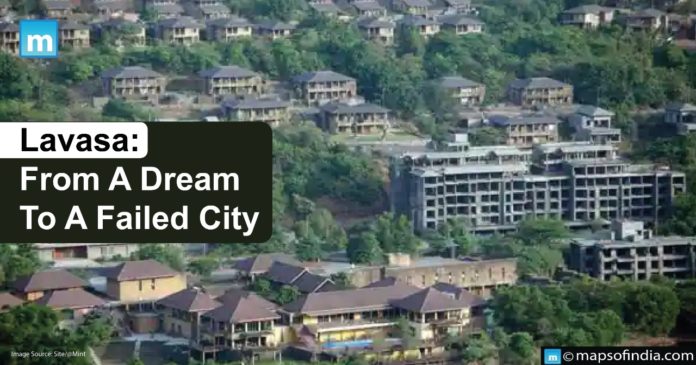Hindustan Construction Firm, managed by Ajit Gulabchand, established the company in 2000. (HCC). His vision was to build the country’s first privately constructed metropolis on 20,000 acres in the Mulshi and Velhe portions of Maharashtra’s Pune district. Lavasa City by Lavasa Group is a partnership of HCC (68.7%), Avantha Group (17.18%), Vithal Maniar (6.29%), and Venkateshwara Hatcheries (7.81%). The township was designed to house three lakh people. The proposal is aimed at flats, villas, and hotels. After the environment ministry placed a stop-work order on the project in 2010, it defaulted on bank debts.
Facilities proposed in the project
Sporting venues
- A Nick Faldo-designed golf club and a Manchester City-branded football college are among the planned sporting facilities.
- However, the Nick Faldo webpage no longer promotes the golf course, and Manchester City’s first statement about a football academy was in 2010.
Amusement park
- A theme park covering more than 65 acres (0.26 km2) is also included in the project.
Educational Facilities
- The city of Lavasa eventually hosts one university. Initially collaborating with the University of Oxford, this British institution dropped out of the project by 2010.
- In 2010, Symbiosis International University announced plans to establish a new liberal arts college branch in the township.
Various issues plague the project
Environmental degradation
- An investigation by the Indian Ministry of Environment and Forests revealed that Lavasa has harmed the environment because it is built “in the scenic highlands of the Western Ghats, a World Heritage Site by UNESCO distinguished for its perennial grass, forested hills that preserve more than 300 species of threatened animals, birds, and fauna.”
- Following a study of the project, this ministry granted Lavasa approval on November 9, 2011, subject to several restrictions, including the halting of hill-cutting activities, the construction of a sewage treatment facility, and anti-poverty CSR efforts focused on the local community.
Acquisition of land
- The government and individual landowners have criticised Lavasa’s land acquisition strategy.
- According to a study by the Maharashtra environment department, Lavasa Corporation purchased six hundred hectares of land from farmers the Indian state had given it.
- Because of how the farmers gained the property, the state should have received three-fourths of the purchase price. According to the study, Lavasa Corporation barely paid 2%.
- It further claims that the Maharashtra Krishna Valley Development Corporation leased 141 hectares (350 acres) of Lavasa for significantly less than its real worth and that Lavasa purchased 98 hectares (240 acres) of property without a licence.
The Environment ministry’s directive on construction halt
- Due to restrictions given by the Ministry of Environment and Forests, the building of Lavasa had to be delayed for a year from late 2010 to late 2011.
- It ordered Lavasa Corporation to cease further operations in late 2010 due to a lack of necessary approvals.
- This ministry eventually yielded in November 2011, and work is no longer prohibited by law. While an environmental certification was suggested in May 2011, Lavasa was only informed of its approval on November 9, 2011.
Repayment Issues
- Lavasa has defaulted on bondholder dues and has postponed repayment to other creditors, including banks.
- Hindustan Construction Ltd. is now trying to clear its 41.5 billion rupee loan, allowing the township to deteriorate.
- Due to neglect, buildings that were once vibrant red and yellow have lost their Mediterranean lustre.
- Moss is growing on the cobblestone streets and stone bridges. In certain instances, the sidewalks are eroding.
- Many accusations concerning unlawful investments by politicians and banks have also hampered the project. This stance on the project harmed it.
Current Scenario
In August 2018, the National Company Law Tribunal (NCLT) approved a petition to declare Lavasa Corporation Limited insolvent and solve its nearly Rs. 60 billion financial trouble. A Pune-based buyer was willing to purchase the project in August 2019 for around Rs. 5.4 billion, but an arrangement has yet to be established. Ironically, residents of Dudhwan village, one of the Eighteen villages from whom property for the Lavasa project was purchased, points out that the people struggle for basic utilities right adjacent to the luxury city modelled after Italian hill towns.




